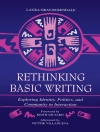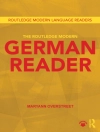What it really means to ‘read closely.’
What could Fern Arable, Jay Gatsby, and Winston Churchill possibly have in common? They all need masterful teachers to help students revel in their complexity. And Nancy Frey and Doug Fisher are just the two mentors to help you make that happen.
Call it close reading, call it deep reading, call it analytic reading—call it what you like. The point is, it’s a level of understanding that students of any age can achieve with the right kind of instruction. In Rigorous Reading, Nancy and Doug articulate an instructional plan so clearly, and so squarely built on research, that teachers, schools, and districts need look no further.
The 5 Access Points Toward Proficiency
There’s more . . . Also included are illustrative classroom video clips available via QR codes along with an online Facilitator’s Guide with Power Points–making Rigorous Reading the only resource a teacher, school, or district needs to seriously stretch students’ capacity to read and comprehend text.
Table of Content
List of Videos
Foreword by P. David Pearson
Acknowledgments
Introduction: Your Access Point
Chapter 1. Ramping Up for Complex Texts
Reading Complex Texts: Anchor Standard 10
A New Definition of Text Complexity
Reading Closely: Anchor Standard 1
The Importance of Comprehension Strategies Instruction for Accessing Complex Texts
Accessing Complex Texts Through a Gradual Release of Responsibility
Summary
Chapter 2. Access Point One: Purpose and Modeling
Accessing Complex Text Requires Modeling
Accessing Complex Text Requires a Clear Purpose
Summary
Chapter 3. Access Point Two: Close and Scaffolded Reading Instruction
Accessing Complex Text Requires Close Reading
Accessing Complex Text Requires Scaffolded Reading Instruction
Summary
Chapter 4. Access Point Three: Collaborative Conversations
Accessing Complex Texts Requires Collaborative Conversations
Accessing Complex Texts Requires Student-to-Student Interaction
Summary
Chapter 5. Access Point Four: An Independent Reading Staircase
Accessing Complex Texts Requires Independent Reading
Accessing Complex Texts Requires Conferring
Summary
Chapter 6. Access Point Five: Demonstrating Understanding and Assessing Performance
Accessing Complex Texts Requires More Than Personal Connections
Accessing Complex Texts Requires Students to Do Something After Reading
Accessing Complex Texts Requires Formative Assessments
Summary
Coda
Professional Learning Guide
References
Index
About the author
Douglas Fisher is professor and chair of educational leadership at San Diego State University and a teacher leader at Health Sciences High and Middle College. Previously, Doug was an early intervention teacher and elementary school educator. He is a credentialed English teacher and administrator in California. In 2022, he was inducted into the Reading Hall of Fame by the Literacy Research Association. He has published numerous articles on reading and literacy, differentiated instruction, and curriculum design, as well as books such as The Teacher Clarity Playbook 2/e, Your Introduction to PLC+, The Illustrated Guide to Teacher Credibility, The Teaching Reading Playbook, and Welcome to Teaching!.












